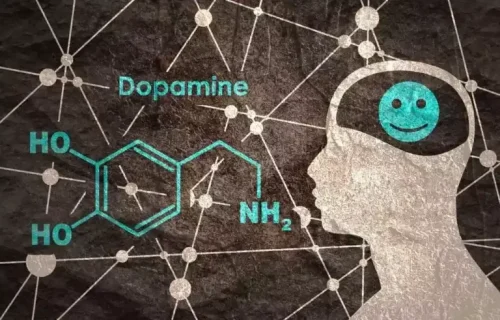
Taken together, these findings suggest that multiple pro-inflammatory and TLR targets as well as epigenetic modifications and signaling should be considered as targets for treatment of AUD. The studies indicating reversal across a broad range of binge drinking-induced deficits call for additional studies on how neuronal networks are altered that allow translation to human studies. Further, additional studies are needed to better understand the mechanisms of epigenetic gene silencing, microglial priming, and ethanol pro-inflammatory signaling.
The Gastrointestinal Microbiome: Alcohol Effects on the Composition of Intestinal Microbiota
- “Alcohol has diverse adverse effects throughout the body, including on all cells of the immune system, that lead to increased risk of serious infections,” said Dr. E. Jennifer Edelman, a Yale Medicine addiction medicine specialist.
- This is not the first study to show the potential benefits of moderate alcohol consumption.
- In contrast, chronic alcohol intake can activate the complement response (Roychowdhury et al. 2009), both by inducing the biochemical pathways that lead to activation of the complement cascade and by suppressing processes to terminate or regulate the cascade (Bykov et al. 2007).
- Molina and colleagues review research showing that alcohol impairs recovery from three types of physical trauma—burn, hemorrhagic shock, and traumatic brain injury—by affecting immune homeostasis.
Granulocytes are white blood cells (i.e., leukocytes) that derive their name from the large granules that are visible when the cells are stained for microscopic analysis. They further are characterized by oddly shaped nuclei with multiple lobes and therefore also are called polymorphonuclear leukocytes (PMNs). These cells act as phagocytes—that is, they engulf pathogens and ingest them in a process called phagocytosis.

Moderate alcohol consumption ‘boosts immune system’
Evidence supports that epigenetic gene-regulating mechanisms such as histone methylation are involved in causing microglial and astrocyte sensitization or priming that increases pro-inflammatory gene expression, including TLR and other genes. Further, studies found that cholinergic neurons respond to HMGB1-TLR signaling with increases in REST that silence ChAT and other cholinergic genes, changing neuronal phenotypes (i.e., reducing cholinergic neurotransmission). These epigenetic shifts in cellular phenotype are proposed to contribute to altered networks that show progressive involvement of brain regions, consistent with the progressive changes across binge intoxication, negative affect, and cognitive dysfunction components of AUD (Figure 3). Inhibitors of epigenetic signals, like anti-inflammatory treatments, can reverse and prevent binge drinking adaptations across glia and neurons, as well as behavioral changes in alcohol drinking, anxiety, and cognition.

World Health Organization Health Topics Alcohol
Taken together, these studies suggest that chronic alcohol-induced T cell lymphopenia increases T cell activation and homeostatic proliferation resulting in increased proportion of memory T cells relative to naïve T cells. Chronic binge-like ethanol exposure of rodents increases brain HMGB1 levels similar to levels found in the postmortem brains of humans with AUD.15 Alcohol drinking in rats increases HMGB1 only after several drinking episodes. Multiple drinking cycles increase HMGB1 as well as promoting anxiety-like behaviors.
Cellulitis, Post-Surgery Complications, and, Slow Healing of Wounds
We could hypothesize that by reducing the gut bacterial load, lower amounts of bacterial components would reach the systemic circulation, leading to reduced activation of pro-inflammatory components. AUD involves the persistent use of alcohol despite problems, adverse consequences, and harm that occur during drinking to intoxication and that increases in frequency and transitions to preoccupation with alcohol and compulsive harmful alcohol use. AUD development is conceptualized as dysregulation of brain regional networks involving binge drinking, increasing incentive salience, and habitual alcohol drinking frequency. Over several cycles of intoxication and withdrawal, this dysregulation is thought to increase negative emotional states that over time reduce executive functions, goals, and planning and contribute to the compulsive harmful alcohol use of AUD. Koob and Volkow1 have proposed that several neurocircuits are involved in these functional domains, which overlap with networks identified by fcMRI as the SN, CEN, and DMN.
Normal immune function hinges on bidirectional communication of immune cells with nonimmune cells at the local level, as well as crosstalk between the brain and the periphery. These different layers of interaction make validation of the mechanisms by which alcohol affects immune function challenging. Significant differences between the immune system of the mouse—the primary model organism used in immune studies—and that of humans also complicate the translation of experimental results from these animals to humans. Moreover, the wide-ranging roles of the immune system present significant challenges for designing interventions that target immune pathways without producing undesirable side effects.

How Different Drugs Cause Heart Damage — Plus, Signs to Look for
- These mechanisms involve structural host defense mechanisms in the gastrointestinal and respiratory tract as well as all of the principal components of the innate and adaptive immune systems, which are compromised both through alcohol’s direct effects and through alcohol-related dysregulation of other components.
- If you drink more than 12 units of alcohol, you’re at considerable risk of developing alcohol poisoning, particularly if you’re drinking many units over a short period of time.
- Alcohol is a powerful chemical that can have a wide range of adverse effects on almost every part of your body, including your brain, bones and heart.
- However, chronic and heavy alcohol consumption can lead to fewer T cells and B cells.
- This is because studies suggest that heavy drinking — defined as over 8 drinks per week for women and 15 per week for men — can disrupt key immune pathways, make people more susceptible to infection, and weaken the immune system.
- For people who drink several times a week and do not have alcohol dependency, even slightly reducing intake can have significant health benefits, Keyes added.
The frequency at which a person drinks also determines how much it affects the immune system. A person who drinks every day is more likely to have a weakened immune system and experience health complications than someone who rarely drinks or only does drinking alcohol weaken your immune system drinks on occasion. Heavy drinking is more likely to affect a person’s immune system than moderate drinking. Women drinking fewer than two drinks at a time and men drinking fewer than three drinks at a time is considered moderate drinking.
We have long heard about how alcohol can impair our motor skills, judgment, state of consciousness, and, of course, our liver. This condition occurs when bacteria enter the chest cavity’s pleural space, typically due to pneumonia or a post-surgery infection. When alcohol damages the gastrointestinal tract’s barrier, bacteria and toxins can enter the bloodstream easily, potentially leading to septicemia and sepsis. As a result, they eventually need to drink more to notice the same effects they once did. Excessive drinking may affect your menstrual cycle and potentially increase your risk for infertility. But drinking can weaken this system, leaving us vulnerable to infections and diseases.

Sexual and reproductive health
- Chronic binge-like ethanol exposure of rodents increases brain HMGB1 levels similar to levels found in the postmortem brains of humans with AUD.15 Alcohol drinking in rats increases HMGB1 only after several drinking episodes.
- Things like trouble concentration, slow reflexes and sensitivity to bright lights and loud sounds are standard signs of a hangover, and evidence of alcohol’s effects on your brain.
- These studies support the hypothesis that the adolescent brain responds to binge drinking with increases in pro-inflammatory signals involving HMGB1 and TLR that change transcription across neurons, microglia, and astrocytes.
- When alcohol hinders the body’s immune system, it also hinders its ability to fight UTIs because it allows bacteria to travel throughout the body faster.
- But, when you drink more than 2 standard alcoholic drinks, the body shifts to the microsomal ethanol-oxidizing system (MEOS) to break down alcohol.
- The rest of the SCFAs reach the circulatory system via the superior or inferior mesenteric vein, reaching the brain and crossing the blood–brain barrier thanks to monocarboxylate transporters thus being able to act as signaling molecules between the gut and the brain [74].
If you find it challenging to limit or stop your alcohol intake, it may be time to seek help for alcohol addiction. However, women who drink more than two drinks on one occasion and men who drink more than three drinks on one occasion may experience more health complications due to their excessive alcohol consumption. Alcohol does not directly cause UTIs, but it can increase a person’s risk of developing a UTI and worsen the symptoms of an existing UTI.

Deixar Um Comentário